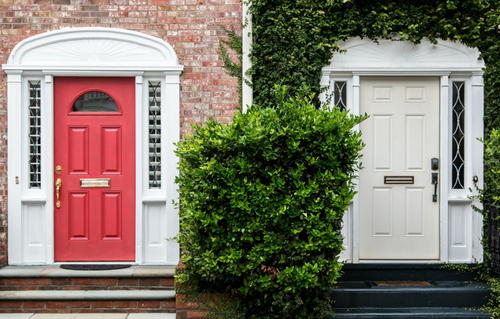10 Home Buying Tips for First-Time Buyers
No one said buying a home was easy! But these home buying tips will make your experience a breeze.

Buying your first home can be quite the daunting experience. There are so many things to consider, so many factors, and so much that can go wrong. But once you get the keys and settle in, you'll see that it was all the hassle and trouble that you went through.
These home buying tips for first-time buyers will make your journey to buying your first home smooth and stress-free.
From making the down payment and considering your credit score to weighting your mortgage options and even negotiating, these tips will help you through the process and will give you the confidence you need to make those first steps towards becoming a homeowner.
1. Save for a down payment long before you buy
Most home buyers put 20% down, but if you're a first-time buyer, you can probably get away with doing much less than that. While having a low down payment is nice right away and can help you get a home sooner rather than later, there are a lot of disadvantages to it as well. A lower down payment often results in a higher mortgage, which can hurt you down the road.
The sooner you start saving, the more you'll be able to afford to put down on your home, and the sooner you can move in!
2. Know your credit score
Your credit score will play a huge part in your home buying experience. As you prepare to buy a home, consider taking some steps to strengthen your credit by alleviating or making a dent in small debts. Lowering your credit score will help you more easily get approved for your mortgage loan and will help you get payments that are more manageable.

3. Calculate the mortgage you can afford
There are many mortgage calculators out there that will help you calculate how much you can afford, like this one from MortgageCalculator.org. But before you know what kind of monthly payments you want to be making, you should also figure in closing costs, moving costs, and anything you may want to spend on upgrades and maintenance to the property.
4. Practice negotiating
Negotiations are one area of home buying where newer buyers are often uncomfortable or have no experience. What can you negotiate? How much negotiation is reasonable?
Just because a home is listed at a certain price doesn't mean it will sell at that price. Sellers will often list their homes higher than they are expecting them to sell for, expecting negotiations to come through the buying process.
Ask your agent about comparable home sales in the area in the last few months to see if heavy negotiations with the seller are worth your time. Keep in mind, though, that if you are negotiating in a seller's market, you may very well end up paying more than list price.
5. Get a home inspection
This is probably one of the most crucial parts of the home buying process. Getting a thorough home inspection can make or break a sale. When you get the home inspection, make sure you are present for the inspection and pay close attention to what the inspector is looking for; don't be afraid to ask questions.
If there are repairs that need to be made to the property, as a buyer, you can sometimes use those repairs during negotiation or have the seller fix them themselves.
6. Don't forget about closing costs
Along with saving money for your down payment, you should also save for your closing costs. These can accumulate pretty quickly, and they're easy to forget about. Closing costs can include things like application fees, appraisal costs, attorney fees, home inspection costs, and home insurance costs. As you save money for your down payment, be sure to calculate closing costs into your savings.
7. Don't forget about upgrades and maintenance either
The expenses don't stop with closing costs. If you're planning to do a lot of renovation and customization of the house, there will be a lot of time and expenses that come along with that. Be sure to calculate how much money you want to spend on upkeep and personalization of the house as a part of the buying process.
8. Hire your agent as locally as possible
Location is everything, even when it comes to your real estate agent. Find an agent who lives near the neighborhood you're looking at; they will be more likely to get you the best deal in the best location if they're familiar with the area.
9. Know when to compromise
We all want our first homes to be our dream homes, but no house is perfect, and you will have to compromise on certain things at some point during the home buying process.
When deciding what you want in a home, make sure to prioritize things by how important they are to you. Remember that some things, like wall color and flooring style, are easy to update yourself in the future.
10. Compare your mortgage options
Last but not least, compare all of your mortgage options to find which one is right for you. With variables like interest rate, fixed-rate vs. adjustable-rate, size of the down payment, and duration of the loan, you have a lot to consider. Be sure to check all of your options before deciding which one is right for you and your home.
What tips do you have for first-time home buyers?
Let us know in the comments!

